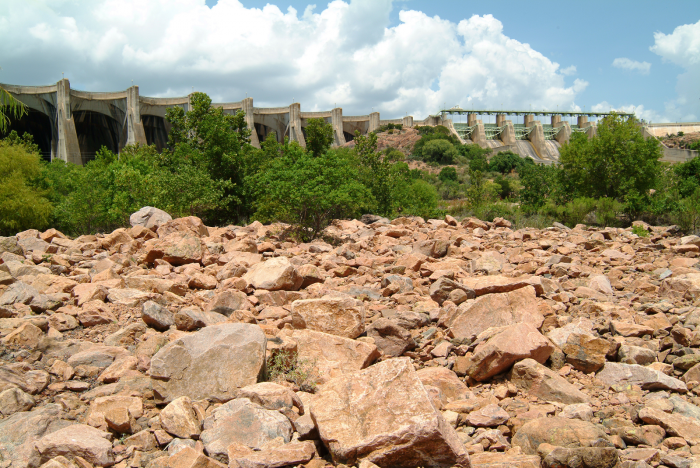Water Matters! CTWC Worried about Future Water Supply

Contributed/LCRA
During extreme drought situations such as the case in 2012, the Lower Colorado River Authority can limit the amount of water flows downstream to so-called "interruptible" customers such as the rice farmers in Matagorda Bay on the Texas coast.
By Jo Karr Tedder
Contributing Writer
Central Texas Water Coalition
Even though we’ve had soup weather, there will be no water alphabet soup column until next month due to questions about the proposed Water Management Plan (WMP). Texas Commission for Environmental Quality (TCEQ) has scheduled a Hearing on the proposed WMP for October 24, 2019 at 7:00pm at TCEQ Headquarters, 12100 Park 35 Circle Building E, Room 201S, Austin, Texas 78753. Comments can be sent to the clerk at this address. In the first informal part of the hearing, you may ask questions, but if you want your questions to be part of the official record, you may submit oral or written questions and/or concerns in the second part of the hearing.
Central Texas Water Coalition has worked since May 2010 to have LCRA be more responsive to the needs of the Upper Basin. While this proposed WMP has improvements, it does not address serious concerns of conservation, rate structure, water losses and low inflows.
Firm customers (cities, water supply companies, businesses, you, etc.) pay $145 per acre foot or, in language we understand, 325,851 gallons of precious raw water, while irrigators pay only $10 for the same 325,851 gallons. Is there a connection between cost and conservation? Everyone needs to address conservation in a serious manner because new water supplies are extremely expensive.
When the new off-channel reservoir becomes operational, LCRA’s water availability models show a 75% likelihood that Interruptible customers will receive a full-supply for first and second irrigation seasons. Despite this high reliability, LCRA’s irrigation customers pay less than 7% of the rate paid by Firm customers for raw water. We respectfully request LCRA’s commitment to reevaluate the rates charged for its Interruptible water.
Water losses are part of the cost inequity. Sending water hundreds of miles downstream from a drought prone upper basin to the fields in the lower basin causes a 30-40% loss. Irrigators can also call for water, decide they don’t need it because it rains so much down basin, choose not to divert it, and not pay for it. I wish we could have a bargain like that! A cap was finally included in this WMP when CTWC continued to raise the issue, but LCRA refuses to consider water rates as part of the WMP.
Even though rainfall occurs, the inflows into Lake Buchanan continue to decline quickly in drought periods. One issue could be the many alluvial wells identified by the Friends of San Saba River, but not addressed by TCEQ. The growth of noxious brush and small impounds also appears to impact stream flows. At a hearing in Fredericksburg, the TCEQ presenter said that TCEQ was not responsible for keeping the rivers flowing but were responsible to see that water permits are honored. Who is responsible to keep our rivers flowing?
The watershed issues highlight the need for more rapid planning attention, because we know how quickly the lakes can be drained. We saw it happen in 2011. Also, the LCRA Board unanimously voted to extend the downstream irrigation release deadline from October 15 to October 31. Strange in light of the flash drought currently occurring in Central Texas.
The proposed WMP has improvements. There are limits on the amount of stored water taken from the reservoirs for interruptible customers. If there is a flash drought, a second crop may be cut off. No interruptible water is released to start a crop if the combined storage falls below 1.1 million acre-feet, which is an increase from the current WMP. These are all positive developments.
Let me be clear. The message Central Texas Water Coalition wants you and LCRA to hear is, “we are worried about the future water supply in the Lower Colorado River basin.” Water will become even more important than the issues facing our congested roads and other infrastructure. Water will become THE issue holding back economic growth and prosperity. We are asking LCRA to provide thoughtful leadership and best practices in the management of our water resources.
Find Karr Tedder's column monthly in The Higlander. If you would like to be considered as a contributing writer, email lew@highlandernews.com. To subscribe to the newspaper, call 830-693-4367 or click here to subscribe to our e-Edition online.

